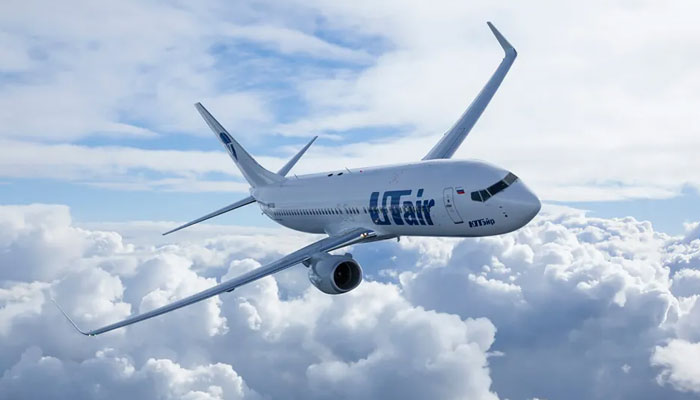Russian 'radioactive' plane's mystery emergency landing sparks controversy
The plane was flying to a Russian region once used for secret nuclear testing in the 1980s
December 11, 2023

A UTAir Boeing-737, carrying a mysterious "radioactive cargo," was compelled to make an emergency landing in Russia with 109 passengers on board.
The airliner faced a perilous situation, necessitating a rapid return to Vnukovo airport in Moscow just 40 minutes after take-off. Pilots executed a terrifying descent at an "increased speed" due to a fault with the wing flaps.
Unbeknownst to the passengers, the aircraft transported 19kg of radioactive material destined for Khanty-Mansiysk in western Siberia, a cargo permitted by the Kremlin.
Despite the unscheduled landing, the hazardous cargo remained undamaged. This incident is part of a surge in alarming plane emergencies, marking more than one occurrence per day in Russia this month.
The series of events raises concerns about the impact of Western sanctions on aircraft servicing and maintenance, potentially contributing to a rise in air accidents in the country.
Russia is grappling with a series of unprecedented air incidents, including a military An-12 making an emergency landing, a Superjet SSJ-100 with landing gear issues, and a sudden depressurization on an Airbus A319.
The country is experiencing a concerning increase in air accidents, with over 120 reported in the first eight months of the year, more than double the usual number, possibly linked to challenges in obtaining spare parts due to Western sanctions.











